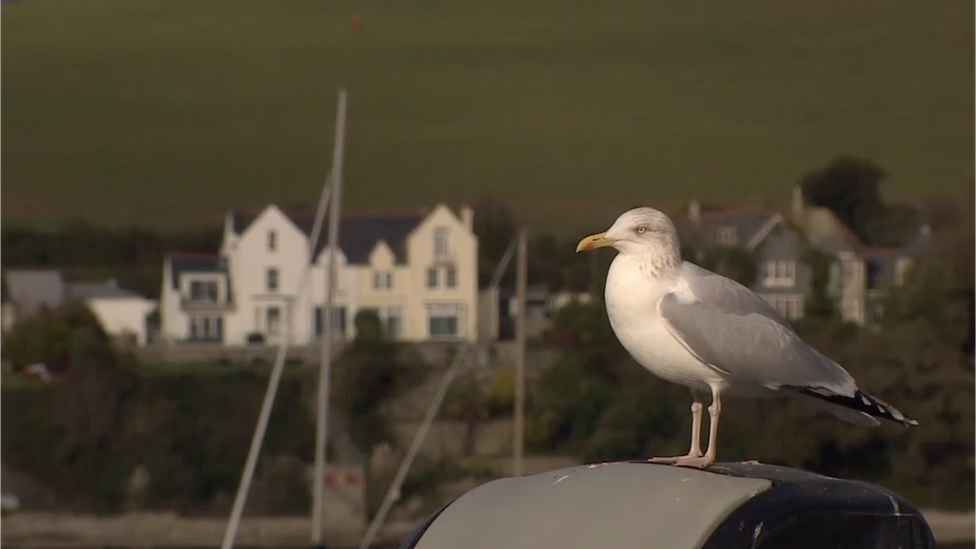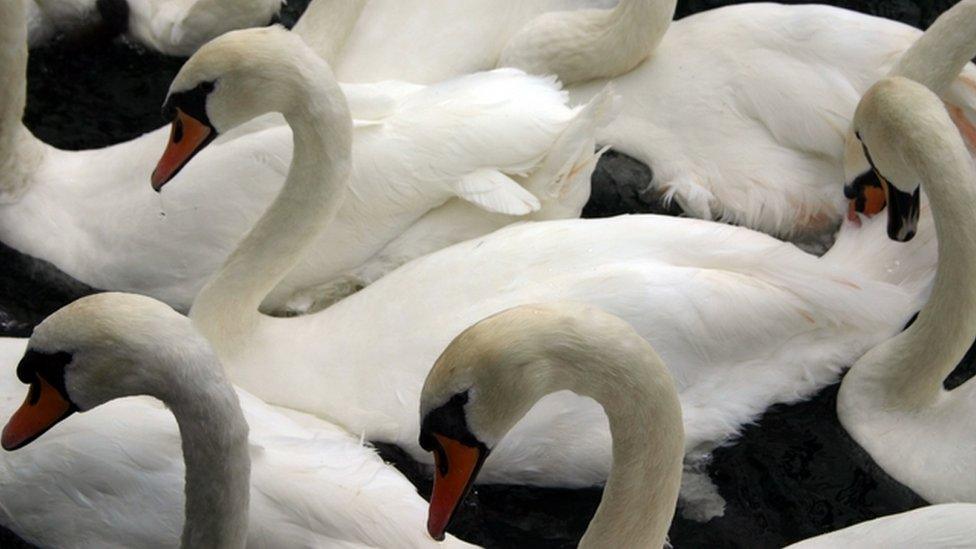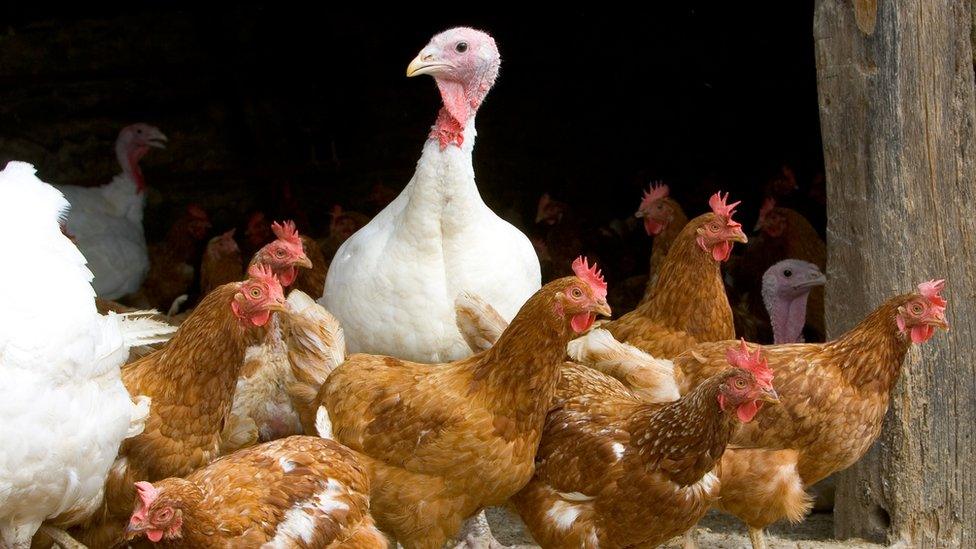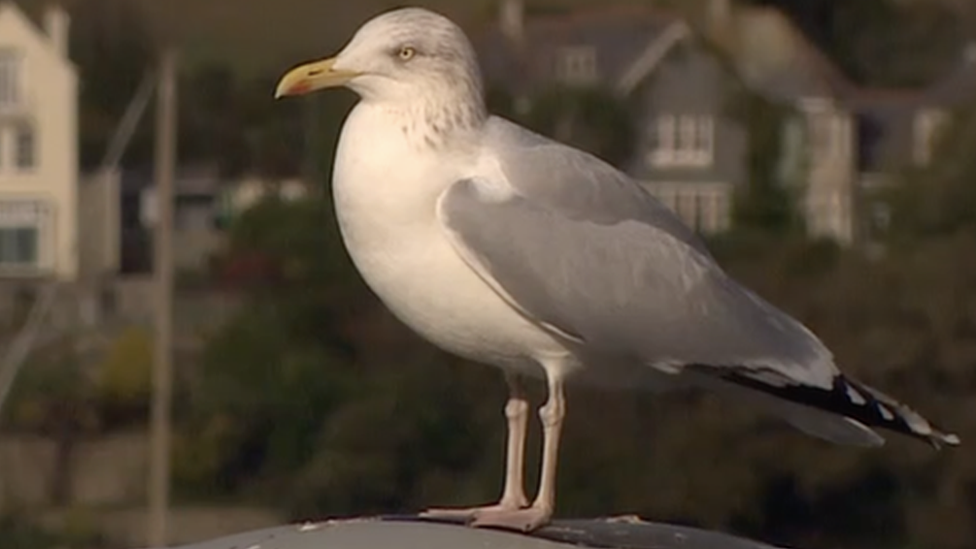Bird Flu: Herring Gulls found dead in Cornwall test positive
- Published

Herring gulls are common in coastal areas
Herring gulls found dead in Cornwall have tested positive for bird flu.
Cornwall Wildlife Trust said they were alerted to 20 dead gulls on Longrock Beach and 14 on Marazion Beach on 18 and 19 January.
It is the first confirmed case of bird flu ever to be recorded in the trust's marine strandings database of more than 10,000 records, it said.
The government confirmed all five of the adult birds collected tested positive for the disease.
The trust said the matter was passed to the Department for Environment, Food and Rural Affairs (Defra) due to the "rarity" of the case.
The case gives local marine conservationists cause for concern, it added.
'Terribly upsetting'
"It's very sad to hear about this case, as with all strandings of dead animals found around our coastline," Abby Crosby, marine conservation officer for the trust, said.
"Seabirds face numerous threats in our marine environment such as lack of prey, habitat loss and bycatch, so to hear that this disease is also impacting populations is terribly upsetting.
"Unfortunately, we may hear of more stories like this in Cornwall as bird flu continues to be a high risk around the country.
"It's essential that people stay alert when visiting the beach, and report any dead marine animal to Cornwall Wildlife Trust's hotline immediately whilst keeping your distance."
Bird flu, or avian flu, is an infectious type of influenza that spreads among birds. The risk to the health of the general public is very low, however, people should avoid touching or picking up any dead or visibly sick animal that they find, it added.

Follow BBC News South West on Twitter, external, Facebook, external and Instagram, external. Send your story ideas to spotlight@bbc.co.uk, external.
- Published18 January 2022

- Published6 January 2022

- Published11 November 2021
